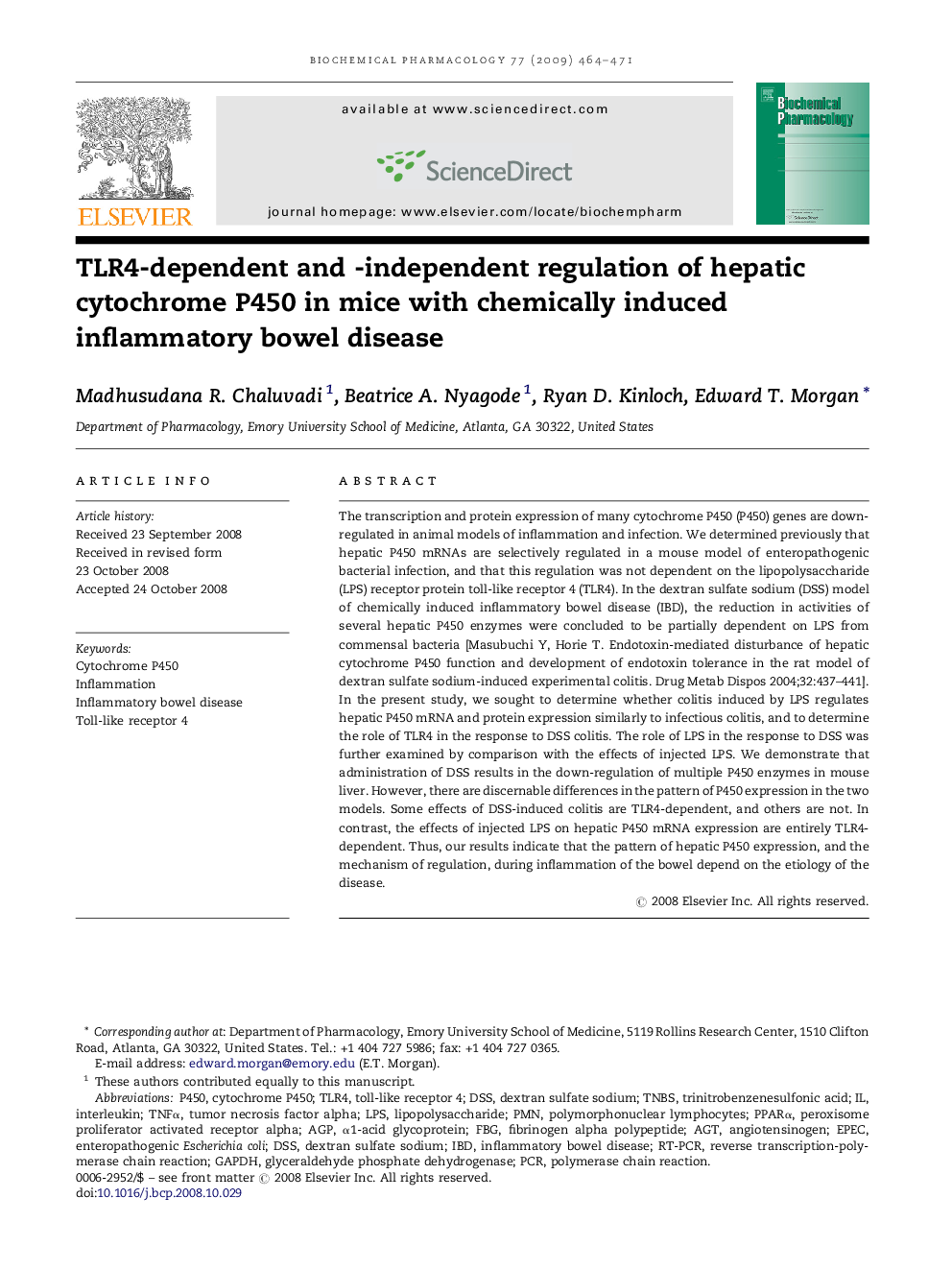| Article ID | Journal | Published Year | Pages | File Type |
|---|---|---|---|---|
| 2514300 | Biochemical Pharmacology | 2009 | 8 Pages |
The transcription and protein expression of many cytochrome P450 (P450) genes are down-regulated in animal models of inflammation and infection. We determined previously that hepatic P450 mRNAs are selectively regulated in a mouse model of enteropathogenic bacterial infection, and that this regulation was not dependent on the lipopolysaccharide (LPS) receptor protein toll-like receptor 4 (TLR4). In the dextran sulfate sodium (DSS) model of chemically induced inflammatory bowel disease (IBD), the reduction in activities of several hepatic P450 enzymes were concluded to be partially dependent on LPS from commensal bacteria [Masubuchi Y, Horie T. Endotoxin-mediated disturbance of hepatic cytochrome P450 function and development of endotoxin tolerance in the rat model of dextran sulfate sodium-induced experimental colitis. Drug Metab Dispos 2004;32:437–441]. In the present study, we sought to determine whether colitis induced by LPS regulates hepatic P450 mRNA and protein expression similarly to infectious colitis, and to determine the role of TLR4 in the response to DSS colitis. The role of LPS in the response to DSS was further examined by comparison with the effects of injected LPS. We demonstrate that administration of DSS results in the down-regulation of multiple P450 enzymes in mouse liver. However, there are discernable differences in the pattern of P450 expression in the two models. Some effects of DSS-induced colitis are TLR4-dependent, and others are not. In contrast, the effects of injected LPS on hepatic P450 mRNA expression are entirely TLR4-dependent. Thus, our results indicate that the pattern of hepatic P450 expression, and the mechanism of regulation, during inflammation of the bowel depend on the etiology of the disease.
